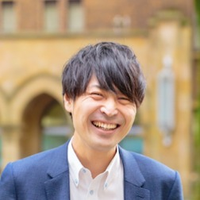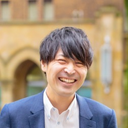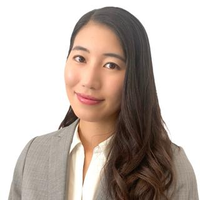Lessons from a Top-level AI Engineer on How to Choose a Right Company
“Is this what? A warehouse?”
The cab driver dropped us off at a corner of a group of warehouses on Heiwajima. There were no cafes nor convenience stores around.
“Is this where many talented engineers are working?”
We finally arrived at the office after wandering for a while looking for the entrance. The door was made of steel plates like a traditional housing complex. I was even more surprised when the door was opened. There were just several long desks with PCs, and several staff were facing the screens silently. Few Japanese. It is said that the president of the company has a policy of not spending unnecessary money on the office.
There was another steel plate door at the end of that office.
When that door was opened, I understood for the first time why the office was located there.
We could see a large facility-equipped lab back behind the door.
Today's feature is Alisher Abdulkhaev, the head of AI engineering in ROMS, from Kyrgyzstan who is working for ROMS Inc. After working for several well-known companies, he turned down offers from large companies and joined ROMS through United World Inc in 2022.
Now, let's go into a top-level AI engineer's thoughts about his career, engineers, and Japan.
1. Alisher's past career
-- Could you briefly introduce yourself?
My name is Alisher. I’m 31 years old. I’m from Kyrgyzstan. I took my Master’s degree and started PhD. in Turkey. When I was doing my PhD., I came to Japan.
I’m an AI engineer, started my AI journey 8 to 9 years ago.
-- What motivated you to come to Japan?
In the beginning, I was doing my Ph. D . in Turkey and I was looking for an internship opportunity in a different country. I had a friend in Japan and he recommended Japan to me. So, I applied for an internship at Rakuten. This was how I came to Japan.
Initially, I was supposed to stay for a short 3 months and return to Turkey to continue my research for my Ph.D. But after the 3 months, I extended my internship in Rakuten from 3 months to 9 months.
During the 6 months, I got to know Asahi-san (United World Inc.). He helped me find a job.
-- Why did you extend 3 months to 9 months?
I just wanted to stay in Japan more. But since it was difficult to find a job immediately, I extended to find a job.
I also had a full-time offer from Rakuten, too, but I decided to join PKSHA Technology Inc because I wanted to work in a small company.

2. How to Choose a Right Company
-- Why did you want to work in a small company?
Because in a small company, you can contribute to the company more. As an example, in Rakuten, when there are 15 members in a team and you are one of them, you cannot really contribute to the company’s progress directly. That’s why I always prefer to work in a small company so that I can use my skills and contribute to the company. This is how I feel happy.
-- While you stay focused on your expertise, AI domain, you changed industries from software to fashion to robotics. What are your criteria when you change your career?
In the beginning, I was in Rakuten. Then, I joined PKSHA Technology and developed AI algorism. The next one was a Singaporean fashion company. I was working on AI as well. And then, a robotic company, ROMS.
AI can be applied in any kind of industry. For me, it doesn’t matter which industry it is as long as I can contribute from an AI perspective. Except for some industries that I don’t want to go to, I don’t choose the industry itself. I consider how I contribute using my AI knowledge.
-- What are your criteria when you change companies to work for?
First of all, it should be a start-up. I like small companies. I’m serious about it.
The second is a technological challenge. If it’s not challenging, I wouldn’t prefer to join. I believe that I have a very good AI background. I want to showcase it and contribute to the company’s business.
The third one is the business model of the company. I don’t want to just join the company and do my job, but I want to join the company and make it big. I want to see their success.
3. About ROMS
-- How do you like ROMS so far?
I liked ROMS before joining. ROMS has all I want – a start-up company, challenging, and a good business model. After I joined, actually I like ROMS more. It is better than I was expecting.
Especially, I’m very impressed by the business team of the company. Usually in start-up companies, it tends to happen that engineers develop a lot of technologies, but the business team cannot sell and cannot do marketing. Like my previous company. They have very good technology. But the business team couldn’t use it.
In ROMS, the business team is good at lead acquisition. We are trying to meet the technology-wise demand. This makes me always motivated.

4. Comparison between Other Countries and Japan
-- From a highly educated engineer’s point of view like yourself, how do you see current Japan in terms of technology?
Interestingly, Japan doesn’t have highly skilled AI engineers that much. Very short. Most of the AI engineers in Japan are from other countries. I don’t know why.
Maybe people don’t have the confidence to define themselves as AI engineers. As for foreigners, I see a lot of foreign AI engineers who I wouldn’t call AI engineers. Even though they know little about AI, they define themselves as AI engineers. From that perspective, I think good recruiters are very important here.
-- You have experience on studying Ph.D. at a university in Turkey and at Tsukuba University. Did you feel the difference in the education of AI?
There is a very big difference. In Turkey, professors teach you about AI. This is how I learned. But in Japan, professors don’t teach you. They just follow up on students’ research progress. Students research by themselves.
Oh, this may be a reason that we don’t have many Japanese AI engineers.
Because AI is a very new technology, no one in the world knows about it. That’s why we always have to discuss this with professors or senior people. But the academic culture in Japan is just do and show.
I would say that this academic approach worked for the field which have been existing for a long time like biology, chemistry, or physics. We all know that Japan is quite good at these fields.
But in a new AI field, without discussing, you cannot have a profession. Maybe that is a big difference.
-- Did you feel any cultural difference between Japanese companies and non-Japanese companies?
Definitely, there are differences.
I feel Japanese companies in general, unlike risk-taking. Especially start-up companies in Japan should take more risks.
One of the reasons I chose ROMS was that the company was taking a lot of risks. If you only go safe, you cannot have this huge machine. The problem we are solving is quite big as well. It needs many technologies and challenges. That’s one of the reasons I like ROMS.
When it comes to engineering, foreign engineers are more aggressive about their work. They like to move forward very quickly and do a lot of tries. On the other hand, in Japanese companies, you need to have everything documented and everything should be guaranteed and stable because they want to be responsible to customers. In Japan, it is said that customers are the Gods. I think this philosophy is not understood by foreigners, which makes some complications between employees and companies.
Try to understand the culture first before starting work in Japanese companies. If you understand the Japanese approach, then everything will be fine.
Fortunately, many foreigners are working at ROMS, trying to understand other multi-cultures, so we don't have this problem.
5. Advice on Changing Career
-- Did you do anything to search for your ideal position?
Asahi-san helped me. I think United World is doing very well.
Usually, when I receive a CV, I don’t check the recruiter in the beginning. I judge the CV and say OK or NG. Most of the case I said OK was from United World. As a recruiting agency-wise, I think United World is doing quite a good job and they are trustworthy.
-- Could you tell us tips for a career change?
For job seekers. In most cases, companies have job openings for certain position titles such as “software engineers.” But I believe that no one fits into any kind of position 100%. So, I recommend job seekers to understand the company’s business and their needs.
It happened to me when I was applying to a previous company. They were looking for a software engineer. Since I was an AI engineer, I knew little about software engineering, but I knew that my AI skills could help them. So, I just went there and discussed it. After all the discussion, the job title didn’t matter.
If you feel you would be helpful to the company, don’t consider the job titles. Just go ahead meet them and try to convince them that you will be helpful for their business. Companies don’t know you. Sometimes they, especially small companies, don’t know what kind of people they need.
Another tip would be that do not apply to companies at random. Apply to the company only if you think you would match their business. Otherwise, it will be just losing years of your life.
-- How did you achieve a good career in Japan?
I would say proactiveness is important. Since sometimes companies don’t know what kind of people they need, I just go and propose what you can do. Most people hesitate and feel shy to go discuss with companies. But for me, I can talk to any company because I believe in my skills. Confidence in your specialty is another important point. Once you have confidence, be proactive and introduce yourself telling how you can contribute to the company.
-- Could you give a message to job seekers when changing companies?
Try to make yourself up to date about the specialty you have. We are in a world where technologies are going very fast. If you are not up to date in your specialty, then it might be difficult to change your career.
Also, when you change your company or change your career, try to consider your personal career, too. Everyone should have a career goal. You have to fill the gaps between what you want to be and where you are right now. You have to see where the company is on your road map. Try to join the company which makes you move forward to your goal.


/assets/images/11032058/original/a5fa7d54-f2dd-4607-b102-9c378763aed6?1667346315)

/assets/images/11032058/original/a5fa7d54-f2dd-4607-b102-9c378763aed6?1667346315)